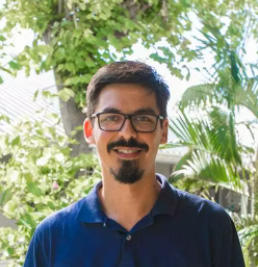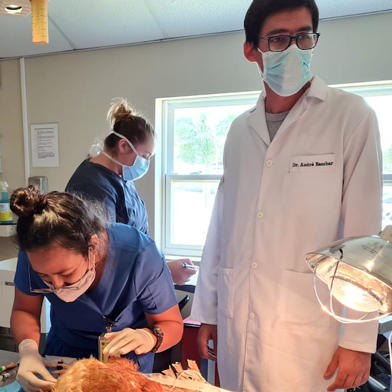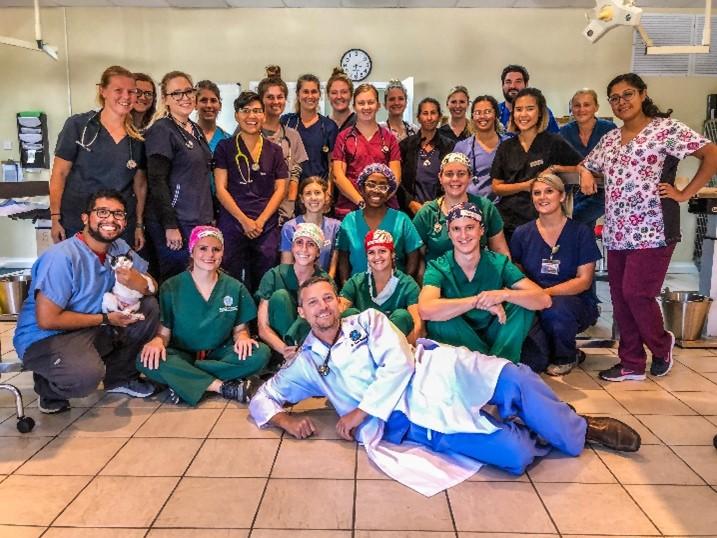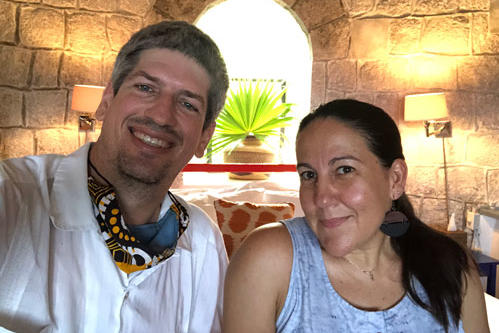Congratulations to Andre Escobar, MV, MSC, Ph.D., Diplomate of the Brazilian College of Veterinary Anesthesia and Assistant Professor of Anesthesiology at Ross University School of Veterinary Medicine (Ross Vet), who published four research papers on avian anesthesia in 2021. The publications are currently hosted by the AVMA Journal, Science Direct Journal, BioOne Journal, and SciELO Brazil.
When asked about his many years of research and background in avian anesthesia, Dr. Escobar reflected on three important breakthroughs:
“In 2008, I started to study the anesthetic effect of drugs in different avian species. The first species I worked with was the crested caracara, a raptor that can be found from Patagonia to South Florida. We assessed the cardiopulmonary effects of inhalant anesthetics in this species compared to when they were awake, which was novel at the time because most research papers didn’t describe the difference between awake and anesthetized birds.”
Later, while earning his doctorate, Dr. Escobar started to study butorphanol, the most used opioid in birds at the time. While working with guinea fowls, he found that butorphanol not only had a small and short anesthetic-sparing effect but could also be dangerous as it induced arrhythmia and cardiopulmonary arrest in some birds. For this reason, he started to work with other types of opioids in hens and found many other better and safe options to induce analgesia under general anesthesia.
“In 2021, we changed the concept that birds are more sensitive to respiratory depression compared to mammals. We found that diving birds can easily stop breathing under general anesthesia but other birds such as chickens respond to anesthesia like mammals—they can maintain spontaneous ventilation at higher doses of inhalant anesthetics.”
Dr. Escobar studied in his native country of Brazil, pursuing his DVM at the Federal University of Minas Gerais and his master’s and Ph.D. at Sao Paulo State University. Since joining Ross Vet in 2019, Dr. Escobar has expanded his avian studies to different options of balanced anesthesia techniques with non-opioid drugs. “I decided to come to Ross Vet because of my big passion to teach and do research. After I graduated in 2005 in Brazil, I worked as a researcher for five years and as a faculty/researcher for another five years, when I decided to do my residency in veterinary anesthesia in the USA. Ross Vet allowed me to focus on teaching and research while other schools would require more time doing clinical work. I also felt that this is a very open-minded community for foreigners to work and make excellent professional and personal relationships. Living in a tropical country also makes me feel back home again, where the island lifestyle is like Brazil.”
Dr. Escobar’s published papers on avian anesthesia are just a small selection of his 37 total career publications. In addition to his research and coursework, he also serves as faculty coordinator of the avian club and plans to invite student club members to join a 2022 study evaluating the effect of non-opioid drugs in the anesthetic requirement in chickens.
After an extensive career largely spent in his home country of Brazil, Dr. Escobar feels right at home pursuing his passions in avian anesthesia at Ross Vet. “I plan to stay long term as faculty, where I have the opportunity to focus on my main lines of research and develop the Ross Vet chicken pain scale, since to date, there are no validated methods to recognize pain in avian species.”
Dr. Escobar’s methadone PK study was funded an external grant from the University of Georgia, and the Isoflurane respiratory index in chickens by an external grant from Sao Paulo State University- Brazil.








